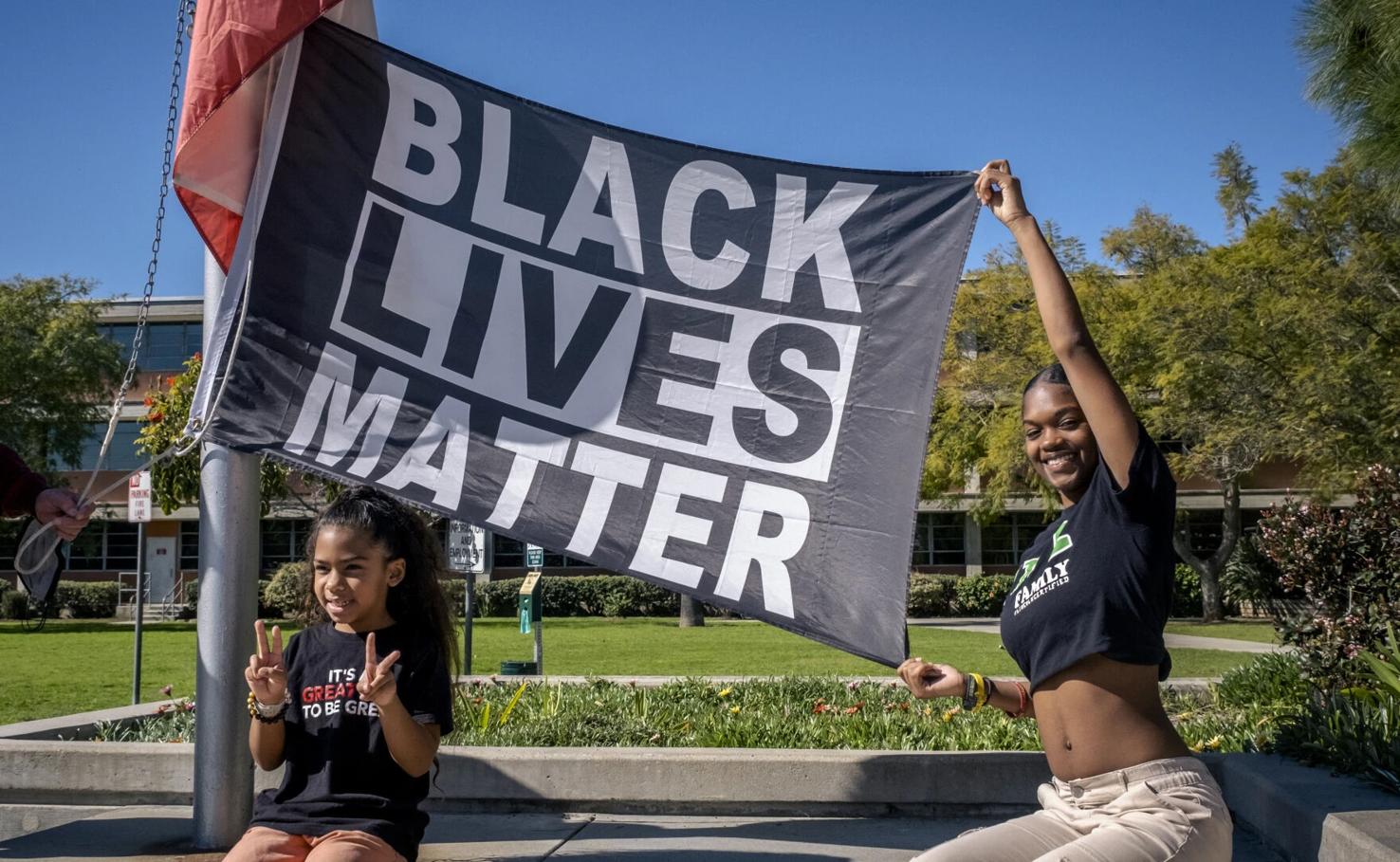Florida Bill Targets LGBTQ+, BLM Flags
Michael Moline Florida Phoenix Jan 23, 2024 Updated Jan 24, 2024

Legislation that would erase the pro-LGBTQ+ Pride flags from state or local government property in Florida sparked passionate defenses of that community and the Black Lives Matter movement last week.
“A governmental entity may not erect or display a flag that represent a political viewpoint, including, but not limited to, a politically partisan, racial, sexual orientation and gender, or political ideology viewpoint,” the measure says, adding: “The governmental entity must remain neutral when representing political viewpoints in displaying or erecting a flag.”
The language would apply to any state or local government entity including public schools, colleges and universities, and would protect kids against being “subliminally indoctrinated with critical race theory, Marxism, transgender ideology,” its Republican co-sponsor, David Borrero of Miami-Dade County, said during a recent committee hearing.
“Public classrooms should not be a place where a kid goes to be radicalized and evangelized into accepting partisan radical ideology,” Borrero continued. “Our taxpayer dollar should not be subsidizing political speech in government buildings and classrooms. It’s time we stopped letting local government and public school teachers from using classrooms and government buildings as their indoctrination pulpit. Flying a pride flag, a BLM flag or flag of a political party has no place inside of our government buildings.”


The vote before the Constitutional Rights, Rule of Law & Government Operations Subcommittee on HB 901 went 9-5, along party lines, in favor of the bill. Next stop is before the full State Affairs committee before a possible floor vote. The Senate version, SB 1120, hasn’t had a committee hearing yet.
subhed = ‘It’s repulsive’
Democrats complained that the bill, one of a number targeting the LGBTQ+ community this year, singles out disfavored minorities since it would apply against both Pride and Black Lives Matter flags.
“Affirming that Black lives matter is not ideology. Affirming and displaying a Pride flag does not hurt anyone,” said Rep. Dotie Joseph, an attorney and the ranking Democrat on the panel. “At bottom, what hurts people in this culture war codification is hate and guns or hate and violence. It’s that combination of things that causes problems.
“It’s repulsive, and however you want to put the window dressing or lipstick on this particular pig, it has the same impact and it makes people less safe. And the reason it makes people less safe is because it validates hate” against “people who have been cherry-picked to be erased.”

Florida local governments sometimes fly the gay pride rainbow flag over public property in solidarity with LGBTQ+ residents and visitors. Teachers have displayed the flag in their classrooms to send the same message but have been forced to cut back following Gov. Ron DeSantis’ Parental Rights in Education Act, also known as “Don’t Say Gay,” passed in 2022 and subsequently expanded, which seeks to ban discussion of gender identity and sexual orientation in schools.
Subcommittee Chair Spencer Roach, a Republican representing DeSoto and parts of Charlotte and Lee counties, voted yes but pointed to problems with the existing language, including an ambiguous definition of what it considers political and what insignia government employees could wear. He suggested tightening the language rather than leaving the matter to the courts.
Subcommittee Democrats pressed Borrero on what the bill would allow and forbid. He suggested the Confederate flag would be a problem but that, say, the Israeli flag would be OK.
“That is not a political flag; it the flag of a recognized nation,” Borrero said.
subhed = Cuba & Venezuela
The same logic extends to the flags of Cuba and Venezuela, Borrero added, and flags of the Armed Forces.
The ban extends to nonfabric representations of flags – on mugs, say.
“If it is a flag or it is an image of a flag, it would be precluded from being flown,” he said.
Joseph pointed out that the bill targets federally protected classifications like race, gender, national origin and religion.
“Would your law be considered discriminatory on its face?” she asked.
No, Borrero said; those subjects would still be protected generally although not in a government building. Under U.S. Supreme Court precedent, “when the government is the speaker, the First Amendment does not apply at all.”
The court also allows the government to bar disfavored speech by employees in the course of their duties, he added.
subhed = ‘Uniting and not dividing us’
“When you get into race, one could argue that a white supremacy flag would be a racial flag. A Nazi flag would be a racial flag. I don’t think any of us want those flags,” the bill’s co-sponsor, Republican Randy Fine of Brevard County, said. “The flags that we’re flying should be governmental flags like the American flag, the flag of Florida, things that should be uniting us and not dividing us.”
At least 53 people signed up to comment, most opposing the bill. Jonathan Webber, Florida policy director for the Southern Poverty Law Center, complained the bill could allow unfair enforcement.
“Whose job is it going to be to go around from local county to government building to determine if the flag meets muster or not?” Webber asked.
Others complained Republicans are wasting time on cultural disputes rather than solving problems including high housing and insurance costs.